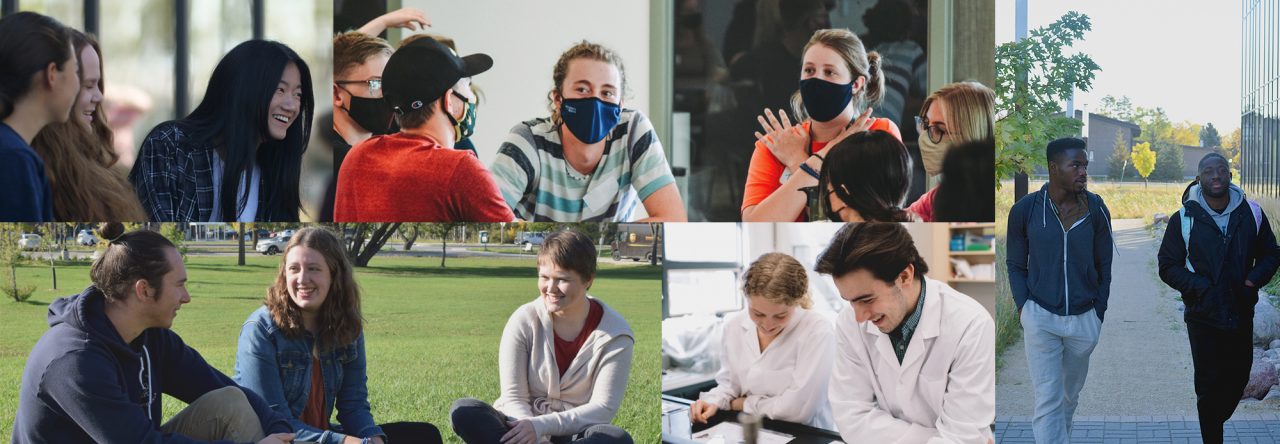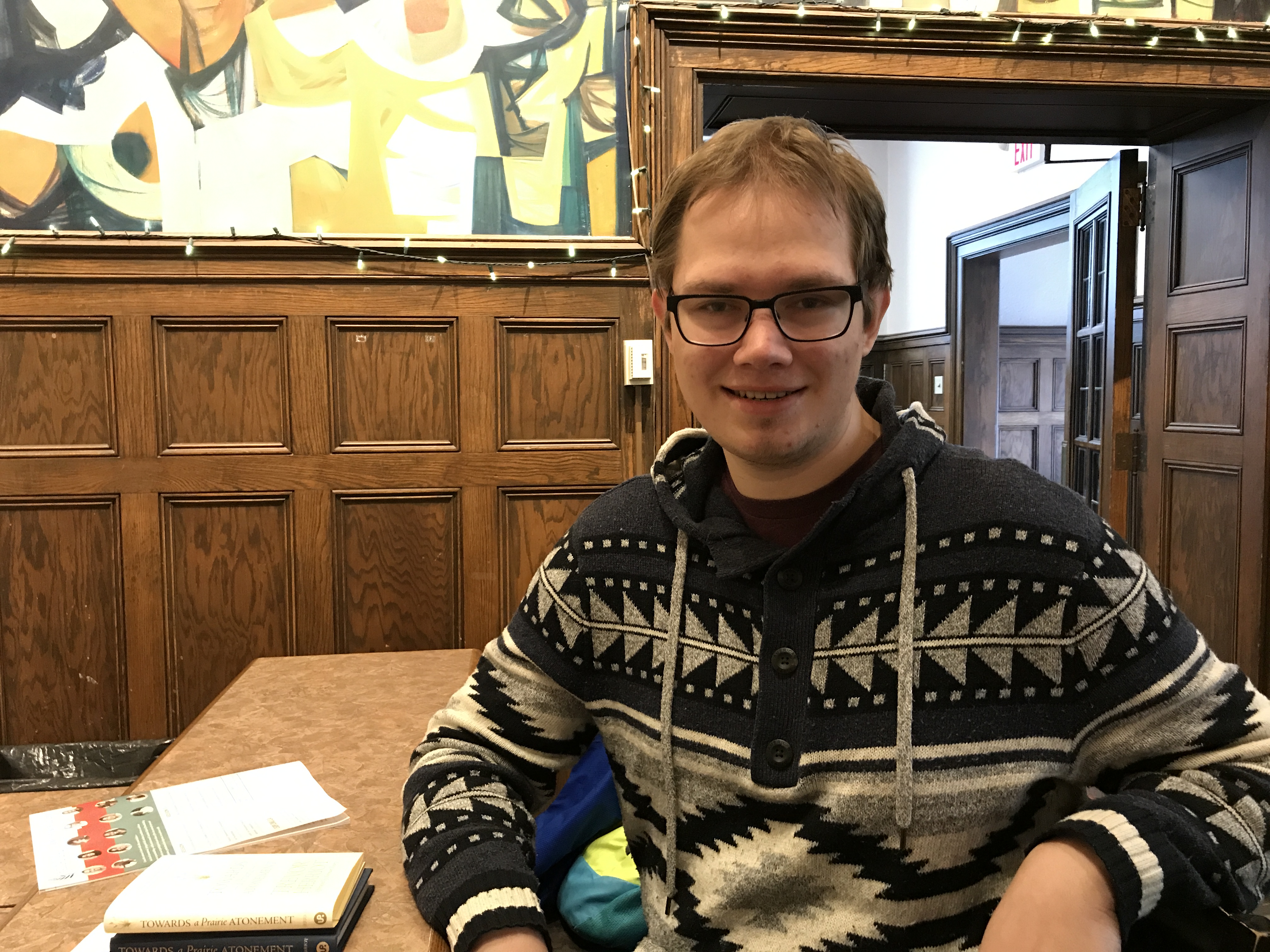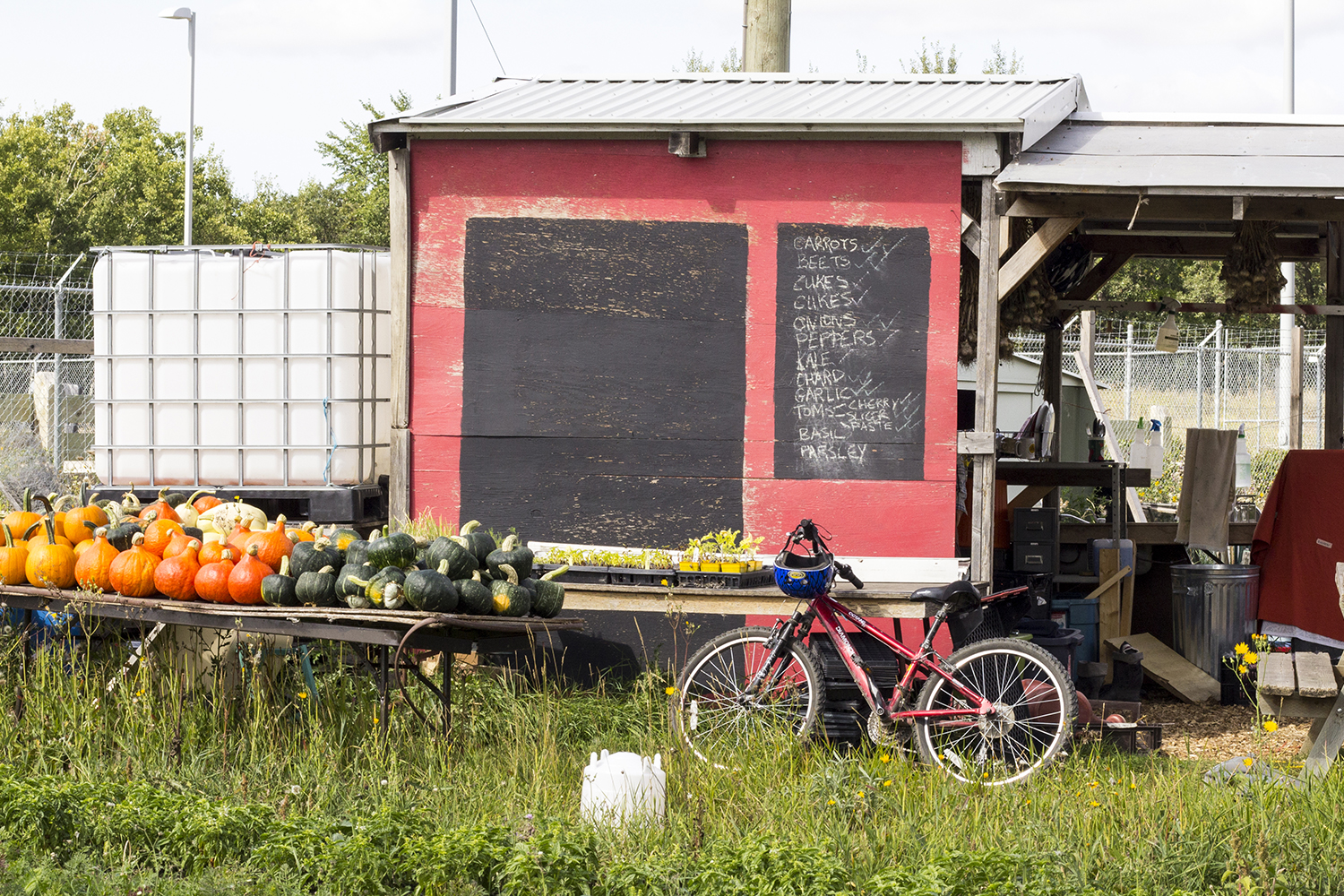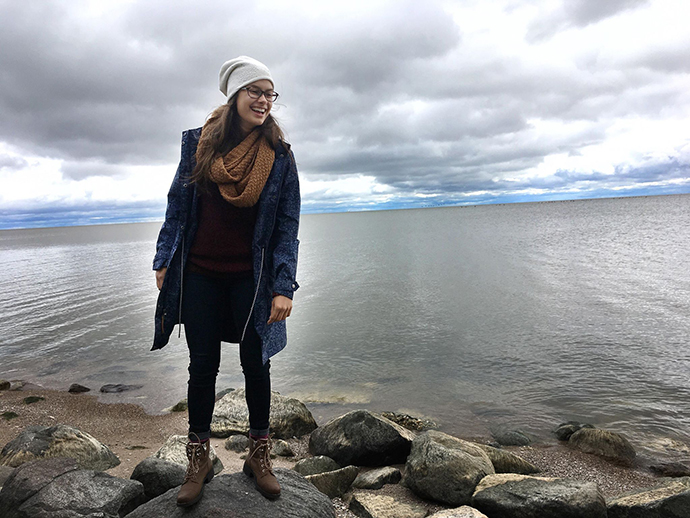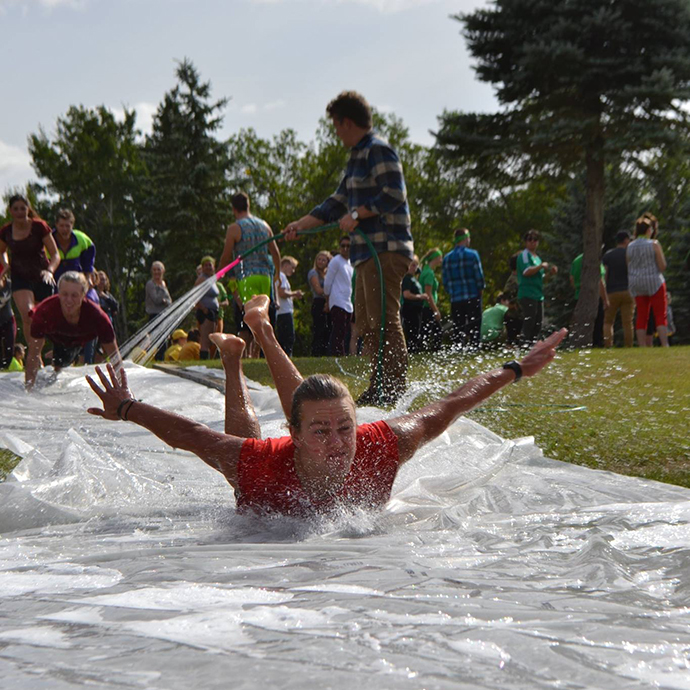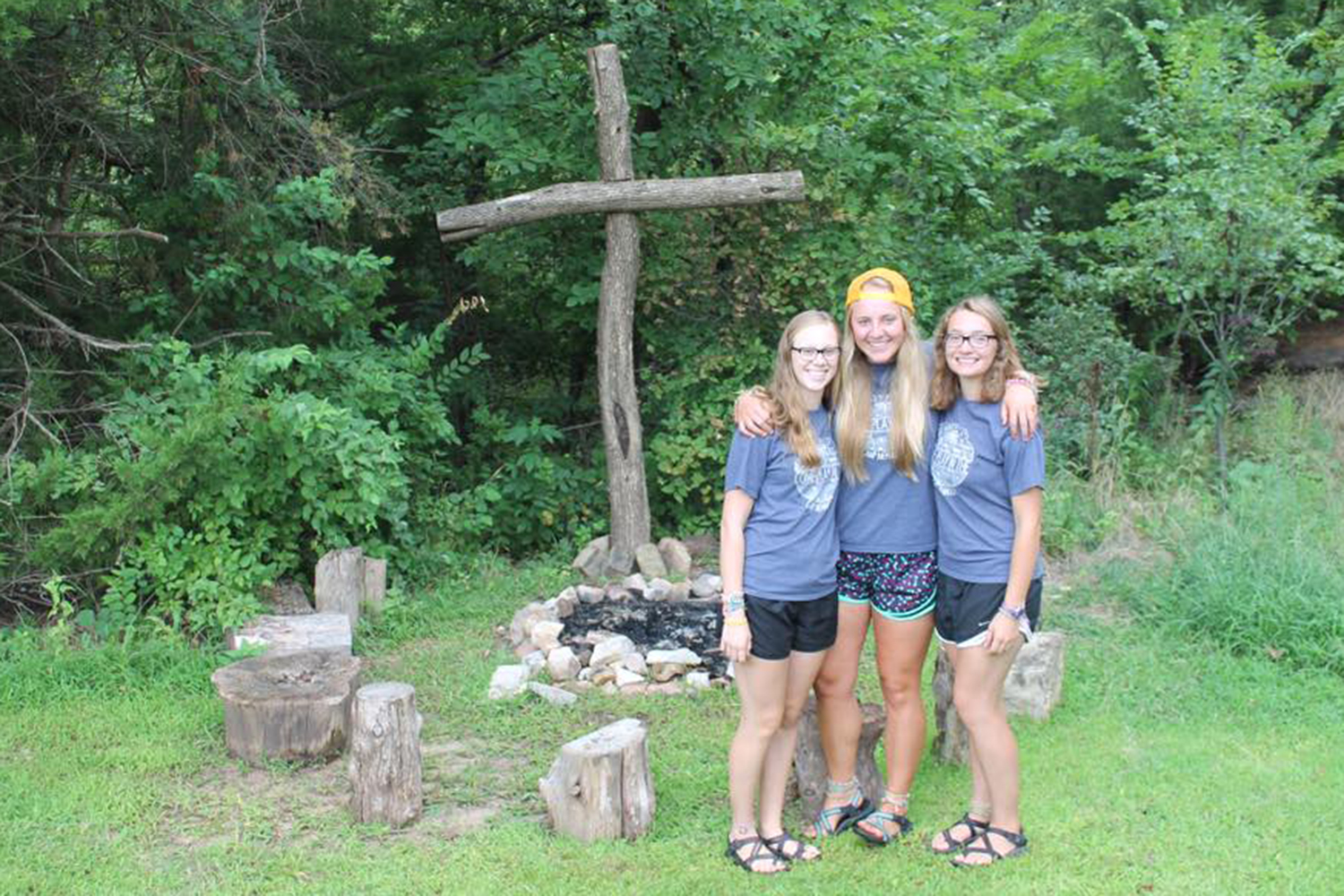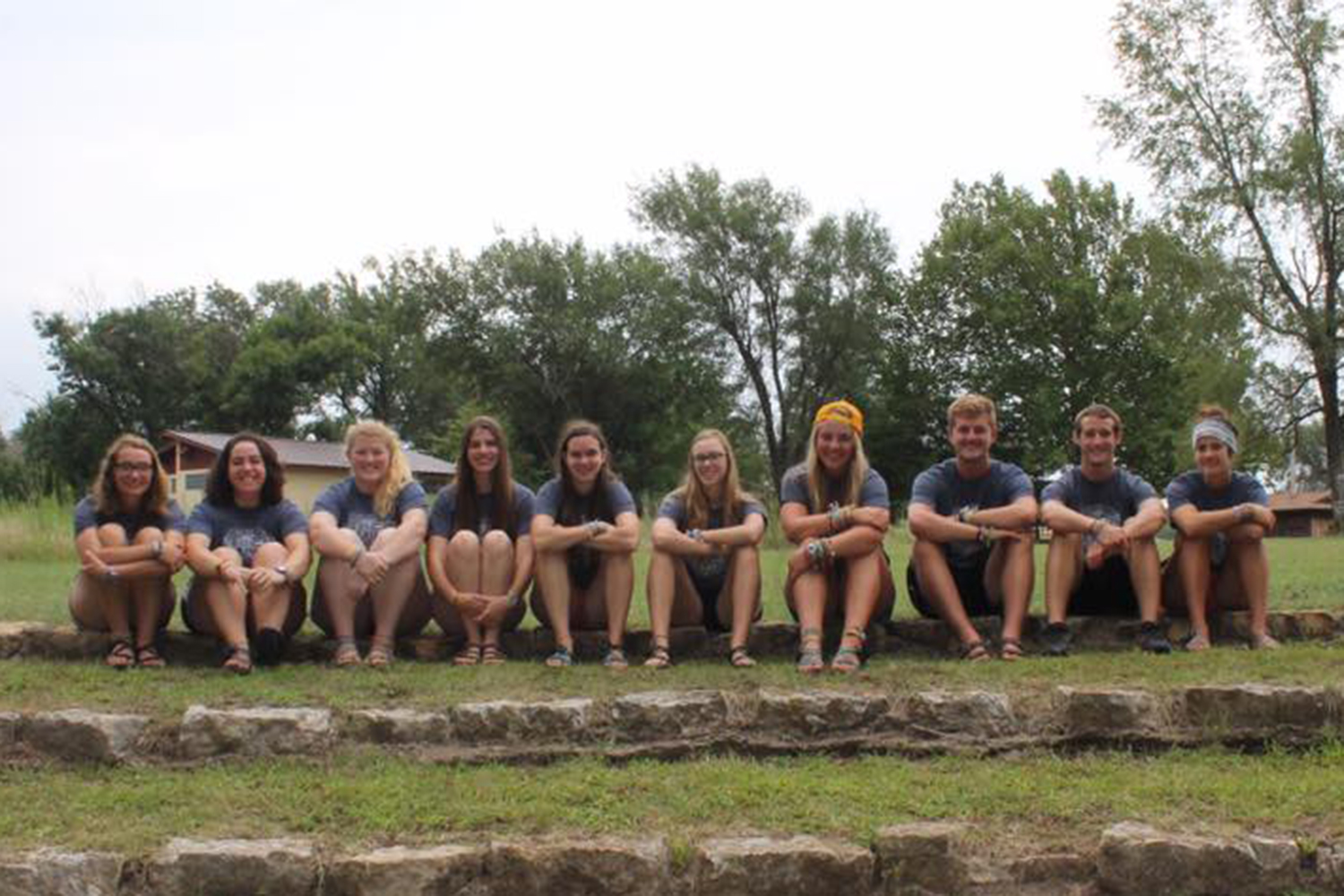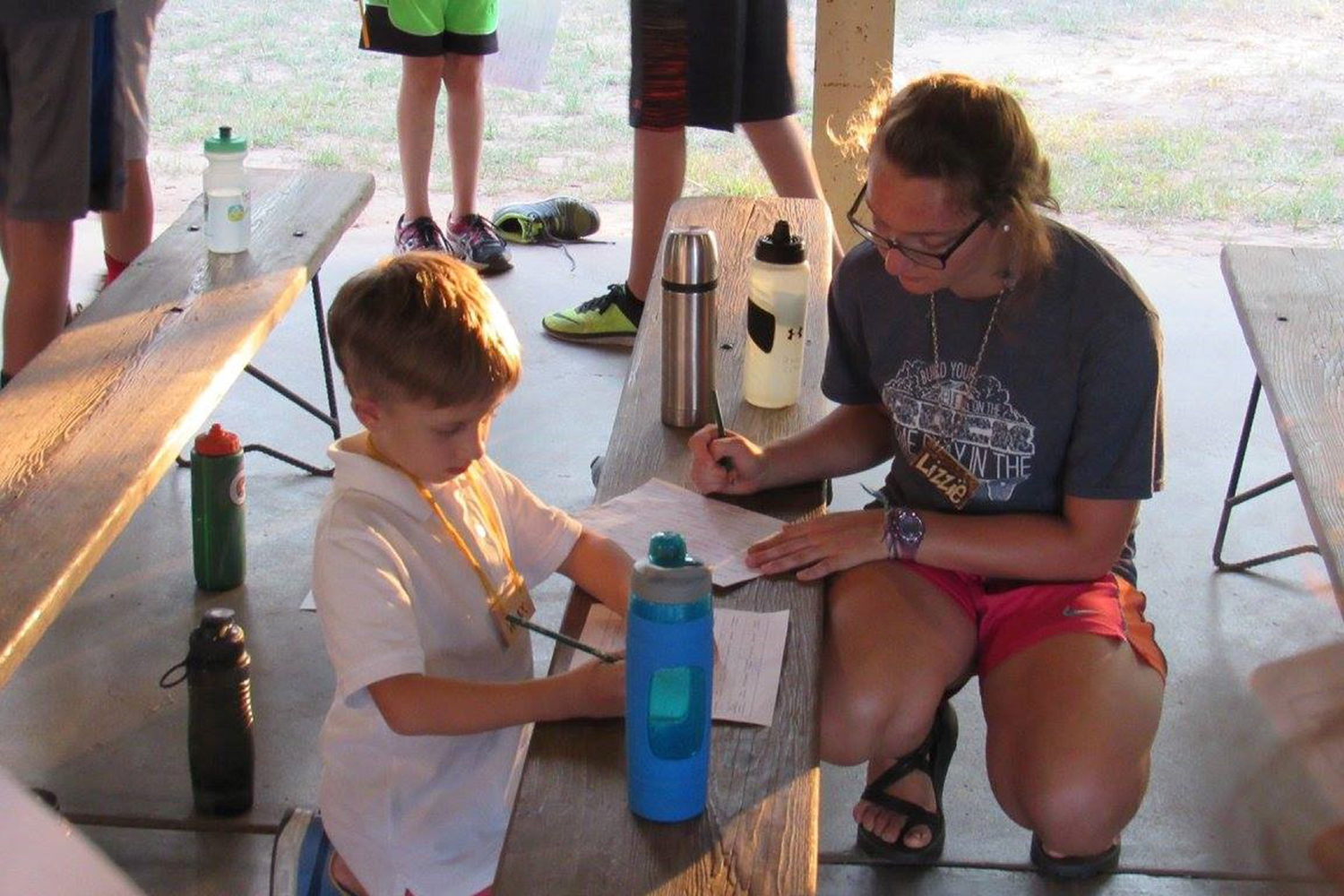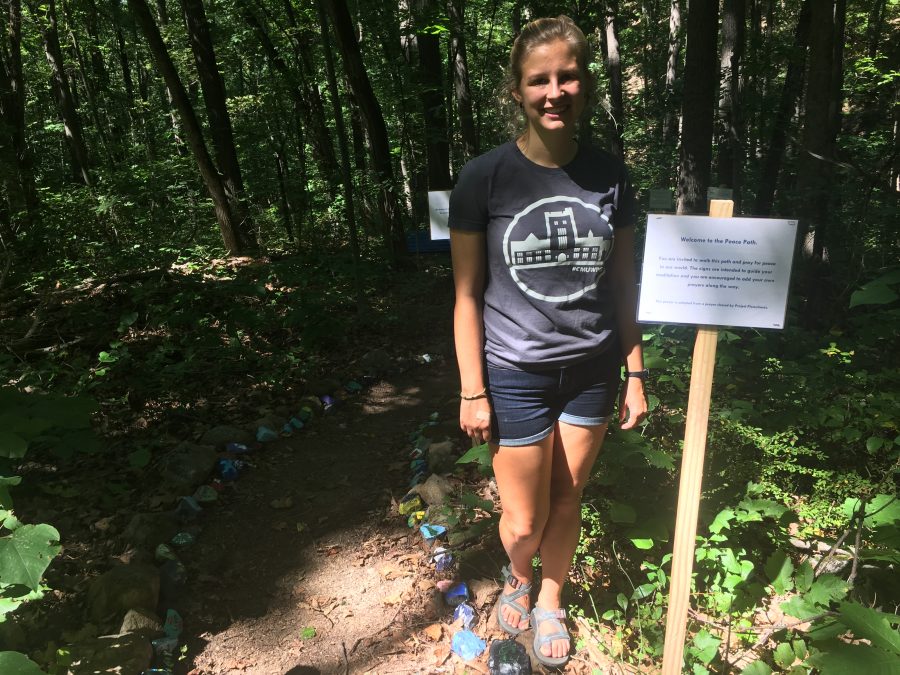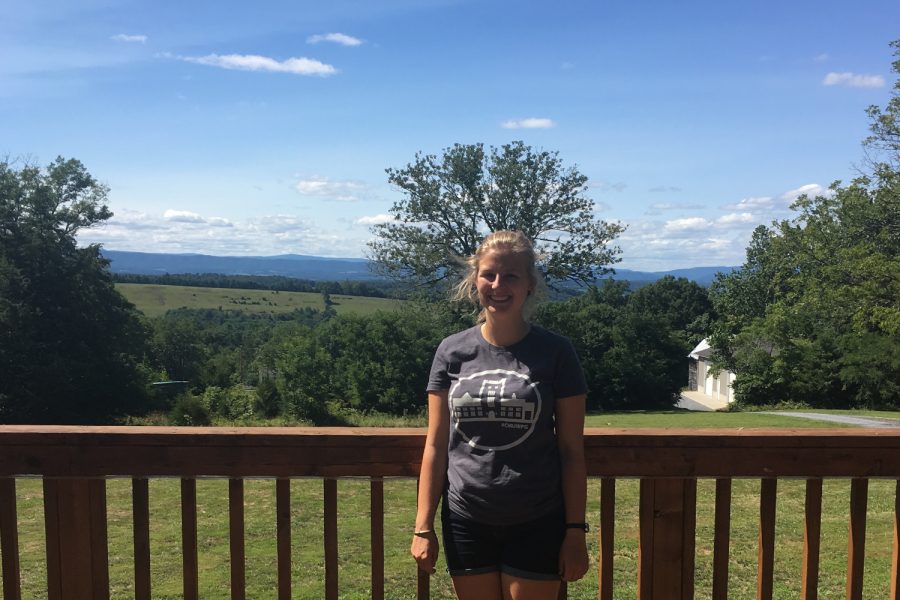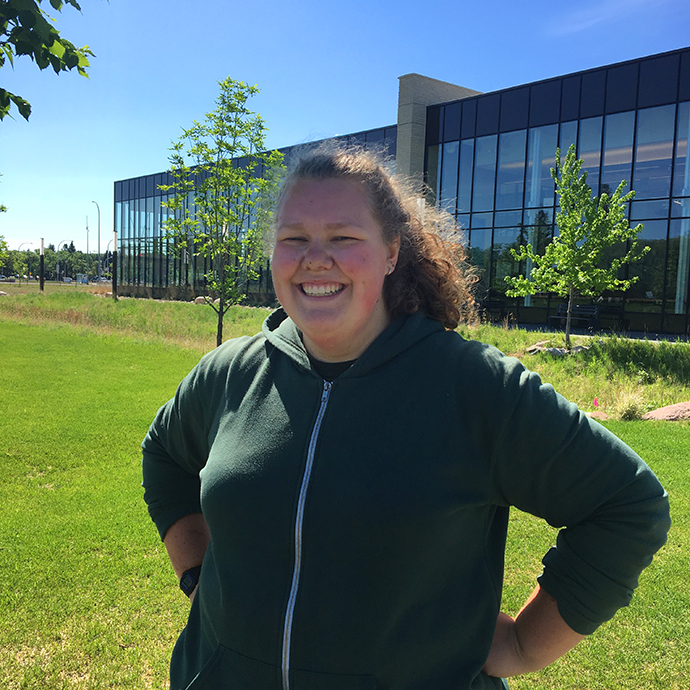 With summer comes many opportunities for students to work all sorts of jobs. These opportunities include retail, a cool community organization, a summer camp; and in my case, on campus at CMU. This summer I am working as a groundskeeper on campus. This means I have to mow the lawn, and do various tasks like weeding, watering, weed whacking, and whatever else the day brings. With little to no experience coming into this job, I have sure learned a lot! Here are some of the lessons I’ve learned so far:
With summer comes many opportunities for students to work all sorts of jobs. These opportunities include retail, a cool community organization, a summer camp; and in my case, on campus at CMU. This summer I am working as a groundskeeper on campus. This means I have to mow the lawn, and do various tasks like weeding, watering, weed whacking, and whatever else the day brings. With little to no experience coming into this job, I have sure learned a lot! Here are some of the lessons I’ve learned so far:
- By the time summer is done I am going to have some very, shall we say, distinct tan lines. The forest green CMU staff t-shirts mean I don’t have to figure out what to wear each day. This sure make mornings easier! But it will definitely leave me with some crisp tan lines across my body come the end of the summer.
- Probably the only time the geese are more scared of you than you are scared of them is when you are driving the quad.
- You can make it through an incredible number of podcasts in one day of work if you set your mind to it.
- The daycare kids think you are the coolest when you drive past them on the quad. They stare at you in awe.
- You can, in fact, get a sunburn when it is overcast.
-
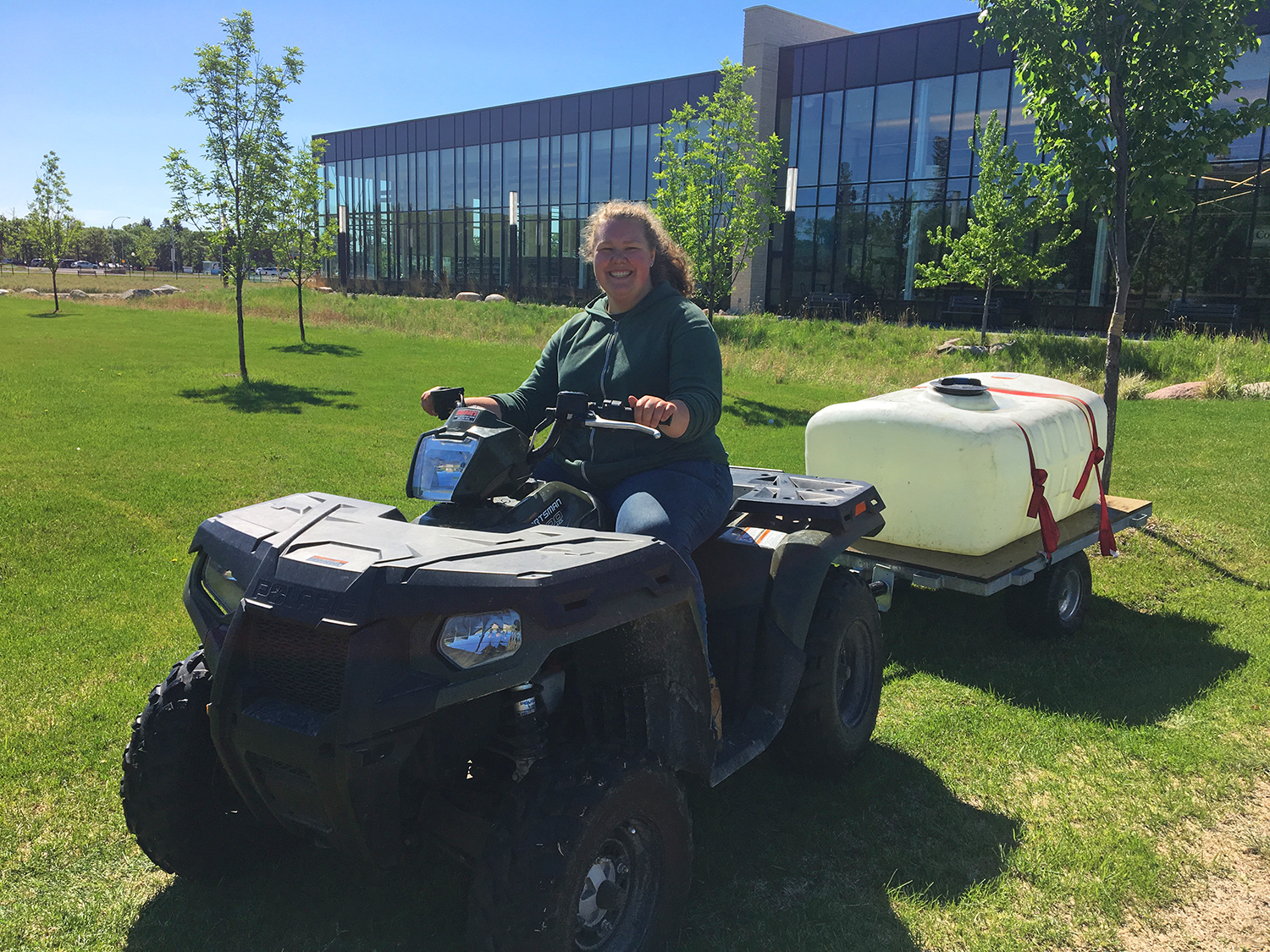 It is incredibly challenging to backup the quad with a tank full of water. But when it takes you 15 mins to back it up to a tree that is in front of the big windows of Marpeck, everyone is too nice to say that they saw you struggling.
It is incredibly challenging to backup the quad with a tank full of water. But when it takes you 15 mins to back it up to a tree that is in front of the big windows of Marpeck, everyone is too nice to say that they saw you struggling. - There is a 7-foot tall banner of Gerald Gerbrandt (former president and professor of CMU) in the basement of CMU, and I wish there were more uses for it.
- I really like driving the quad.
- The Metanoia Farmers are there to save the day! Whether you need to borrow a tool, or want a cool team of people to eat lunch with, the farmers are there for you.
- When you are a student at CMU, you don’t interact much with the hosting and maintenance staff. But when you work with them over summer you come to realize they are actually kind of funny.
- Rainy days may make for a boring day at work, but they make the campus so much greener!
- Maintenance takes some improv at times. And sometimes it takes two guys standing on the back of the tractor to keep it on the ground.
- Though sometimes it can feel like I never leave this place, it’s fun to roam free across campus, ripping around on the quad, hair blowing in the wind, and trying to be ok at my job.
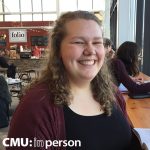 Rebecca Janzen is entering her fourth year in CMU’s Biblical and Theological Studies program this fall. Learn more about opportunities for on-campus employment throughout the year.
Rebecca Janzen is entering her fourth year in CMU’s Biblical and Theological Studies program this fall. Learn more about opportunities for on-campus employment throughout the year.

